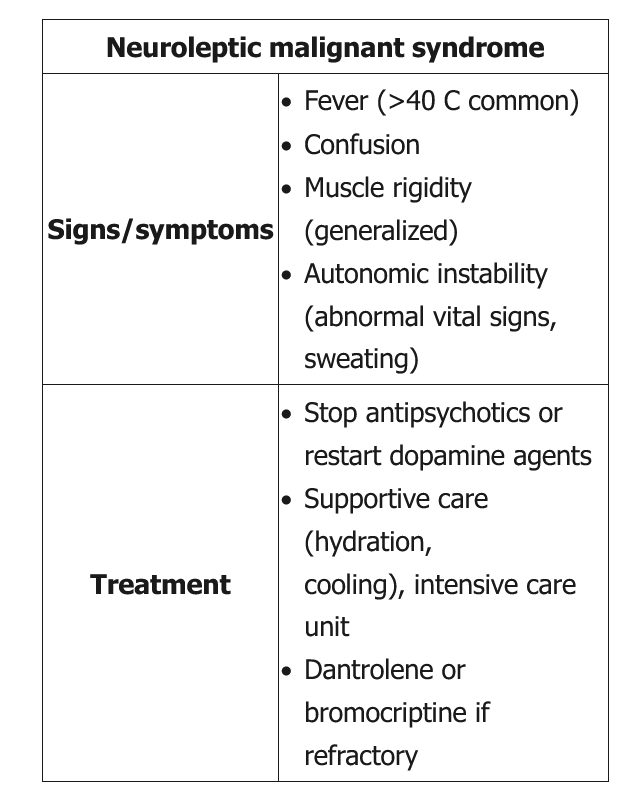neuroleptic malignant syndrome NMS as result of medication withdrawal
- related: Neurology
- tags: #neurology

Although rigidity can be seen in Parkinson disease, the combination of this patient's confusion, fever, diffuse rigidity, and autonomic instability (eg, diaphoresis, hypertension, tachycardia) in the context of recently stopping his Parkinson medication is suggestive of neuroleptic malignant syndrome (NMS). NMS most commonly occurs as an idiosyncratic adverse effect of antipsychotic medications, but it can also occur in patients with Parkinson disease after withdrawal, dose reduction, or a switch in dopamine agents (where it is also referred to as parkinsonism-hyperpyrexia syndrome). The key features of NMS are altered sensorium, hyperthermia, autonomic instability, and generalized muscular (lead-pipe) rigidity. Muscle rigidity is often severe and leads to elevated creatine kinase levels (typically more than 1,000 IU/L). Severe cases can result in rhabdomyolysis with complications of myoglobinuria and acute renal failure. Other common laboratory findings include leukocytosis and electrolyte abnormalities.
Treatment involves immediate discontinuation of antipsychotic medication or reinstitution of dopamine agents, as well as supportive care (eg, rehydration, cooling body temperature). NMS has a mortality rate of 10%-20% with admission to the intensive care unit commonly necessary. Muscle relaxants (eg, dantrolene) or dopamine agonists (eg, bromocriptine) are reserved for patients who do not improve with restarting dopaminergic medication and supportive care.